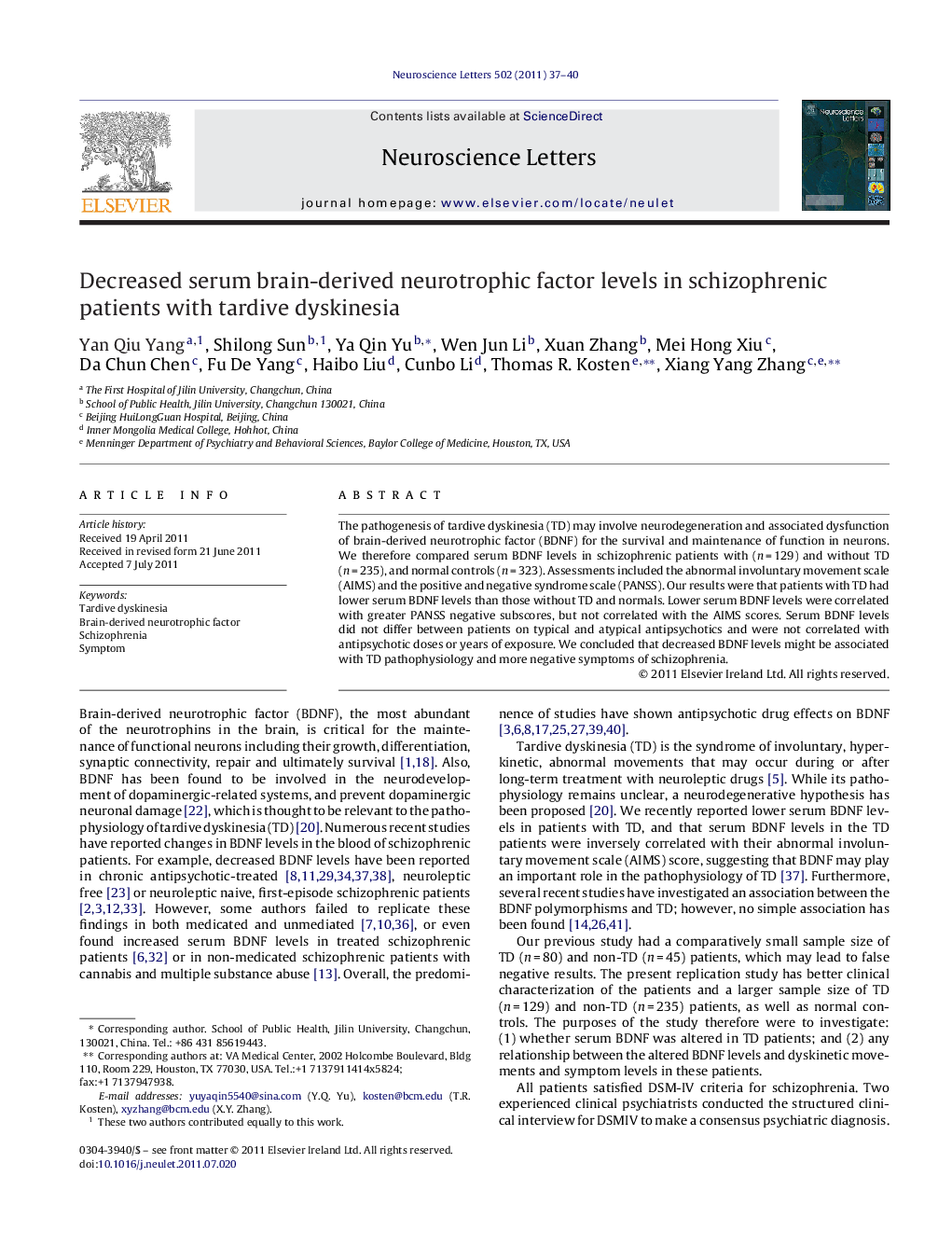| Article ID | Journal | Published Year | Pages | File Type |
|---|---|---|---|---|
| 4345000 | Neuroscience Letters | 2011 | 4 Pages |
The pathogenesis of tardive dyskinesia (TD) may involve neurodegeneration and associated dysfunction of brain-derived neurotrophic factor (BDNF) for the survival and maintenance of function in neurons. We therefore compared serum BDNF levels in schizophrenic patients with (n = 129) and without TD (n = 235), and normal controls (n = 323). Assessments included the abnormal involuntary movement scale (AIMS) and the positive and negative syndrome scale (PANSS). Our results were that patients with TD had lower serum BDNF levels than those without TD and normals. Lower serum BDNF levels were correlated with greater PANSS negative subscores, but not correlated with the AIMS scores. Serum BDNF levels did not differ between patients on typical and atypical antipsychotics and were not correlated with antipsychotic doses or years of exposure. We concluded that decreased BDNF levels might be associated with TD pathophysiology and more negative symptoms of schizophrenia.
► BDNF was measured in schizophrenia with (n = 129) and without TD (n = 235) and controls (n = 323). ► TD had lower serum BDNF levels than non-TD and controls. ► BDNF was negatively correlated with the PANSS negative symptom subscore. ► Decreased BDNF may be associated with TD pathophysiology.
